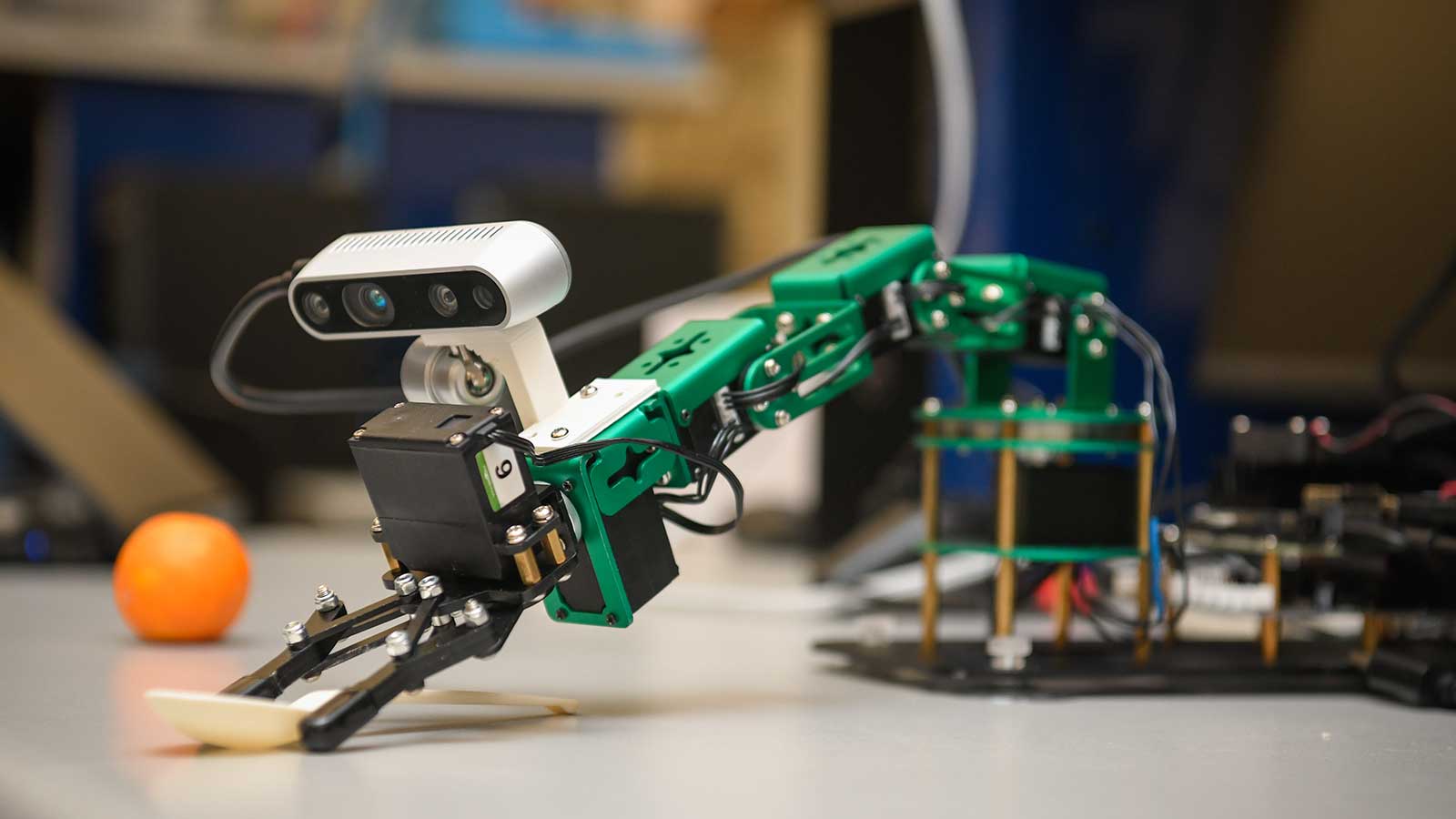The minor in Robotics is designed to provide students with a solid and coherent introduction to the field and consists of two parts: four required core courses (9 credit hours) to give students a strong, working foundation in the associated technology and three elective courses (9 credit hours) that allow students to explore various sub-areas within the field or specialize more deeply in one area.
What is Robotics?
Robotics is an interdisciplinary field that involves the application of mechanical engineering, electrical, computer and software engineering, and computer science knowledge for the design, construction and operation of automated machines that can take the place of humans in dangerous environments or manufacturing processes, or resemble humans in appearance, behavior, and/or cognition.
Commercial and industrial robots are now in widespread use performing jobs more cheaply or with greater accuracy and reliability than humans, or that are too dirty, dangerous or dull to be suitable for humans, e.g., in manufacturing, assembly and packing, transport, earth and space exploration, surgery, weaponry, laboratory research, and the mass production of consumer and industrial goods.
Robotics Core Courses
To graduate with a minor in Robotics, students must earn an average GPA of 2.0 in six courses (18 credit hours).
- MA339 - Applied Linear Algebra (3 credits) OR MA330 - Advanced Engineering Mathematics (3 credits)
- EE455 - Introduction to Mobile Robotics (3 credits)
- EE456 - Introduction to Robot Manipulators (3 credits)
- MP414 - Applied Robotics or equivalent robotics project experience (0 credits)
Robotics Elective Courses
With elective courses, some course substitutions are possible - a list of acceptable substitutions will be maintained by the Coulter School of Engineering and Applied Sciences in conjunction with the Mechanical and Aerospace Engineering department, the Electrical and Computer Engineering department, and the Computer Science department and updated annually.
Electrical and Computer Engineering
- EE260 - Embedded Systems
- EE401 - Digital Signal Processing
- EE408 - Software Design For Visual Environments
- EE446 - Instrumentation
- EE450 - Control Systems
- EE451 - Digital Control
- EE452 - Optimization Techniques in Engineering
- EE465 - Computer Graphics
- EE506 - Image Processing and Computer Vision
- EE652 - Computer Vision
Mechanical and Aerospace Engineering
- ME385 - Design of Electromechanical Systems
- ME443 - Optimal Engineering
- ME444 - Computer Aided Engineering
- ME450 - Control Systems
- CS449 - Computational Learning
- CS451 - Artificial Intelligence
- CS452 - Computer Graphics
- CS459 - Human-Computer Interaction
- CS461 - Mixed Reality
- CS465 - Mobile Robotics/Human-Robot Interaction
- CS652 - Computer Vision




